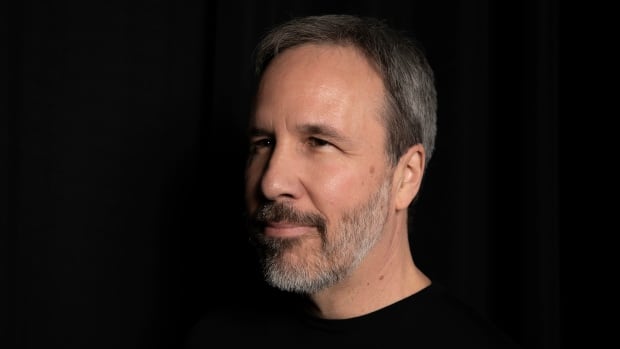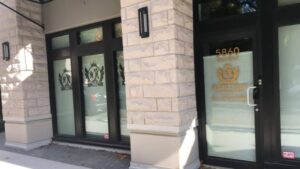
Q23:12Denis Villeneuve: Dune 2, his vision for the sci-fi epic, and how the film reflects issues in the world today
Denis Villeneuve grew up in the small village of Gentilly, near Trois-Rivières, Que., where he could see two structures from his home: the church and the nuclear power plant. That image is key to understanding his vision for Dune: Part Two — the highly anticipated sequel to his sweeping adaptation of Frank Herbert’s epic sci-fi novel.
“[Faith and science] informed a lot about how my psyche was shaped at that time, having to choose between two forms of power: either God or the atom,” the filmmaker tells Q‘s Tom Power in a recent conversation. “Definitely, it was two forms of power that was very present in my life.”
Villeneuve was raised Catholic, like most French Canadians, during a time of immense political and cultural transformation in Quebec, known as the Quiet Revolution. Until the 1960s, the Catholic Church was a central component of French Canadian national identity and civic life.
“The Church was absolutely omnipotent,” he says. “I was not even born at the time, but it had an impact on the reality when I was born.”
I’m coming from a part of the world where we had to deal with such an oppression a long time ago.– Denis Villeneuve
Some of the themes that caught Villeneuve’s interest when he read Dune were the danger of blending politics and religion, the use of religion as a weapon or a tool for oppression and the way cultures are shaped by their environments.
As a filmmaker, he drew on his own upbringing and experiences with religion to guide his depiction of the Fremen people — the inhabitants of the desert planet Arrakis whose lives are controlled by myths, prophecies and superstitions introduced by a mysterious and powerful religious order called the Bene Gesserit.
WATCH | Official trailer for Dune: Part Two:
“The idea that the youth will rebel against the old beliefs and would love to get rid of this alienation to find back their free will … is something that I feel meant something to me,” the director says, “because I’m coming from a part of the world where we had to deal with such an oppression a long time ago.”
From what Villeneuve has seen, religion isn’t a subject that can be easily approached in contemporary cinema because “you’re always in the position of offending someone.” But with a fictional story like Dune, he had the freedom and opportunity to fully explore the issues with religion as he sees it.
“I feel that religion is something that can be soothing, that can be important for humans to ease the existential crisis,” Villeneuve says. “It’s not a coincidence that religion is so prominent and important in our lives, and I don’t want to condemn religion, but I think that the idea to use religion as a form of power is dangerous.”
The full interview with Denis Villeneuve is available on our podcast, Q with Tom Power. He talks more about his vision for the second installment, as well as the challenges of shooting in the intense heat of the desert and how the film reflects issues in the world today. Listen and subscribe wherever you get your podcasts.
Interview with Denis Villeneuve produced by Ben Edwards.

